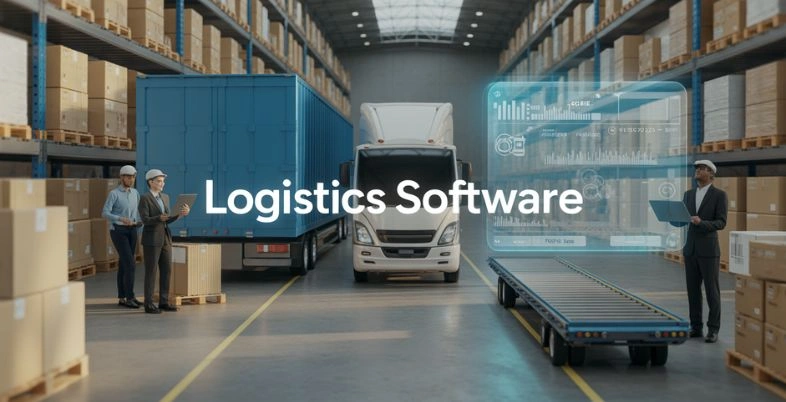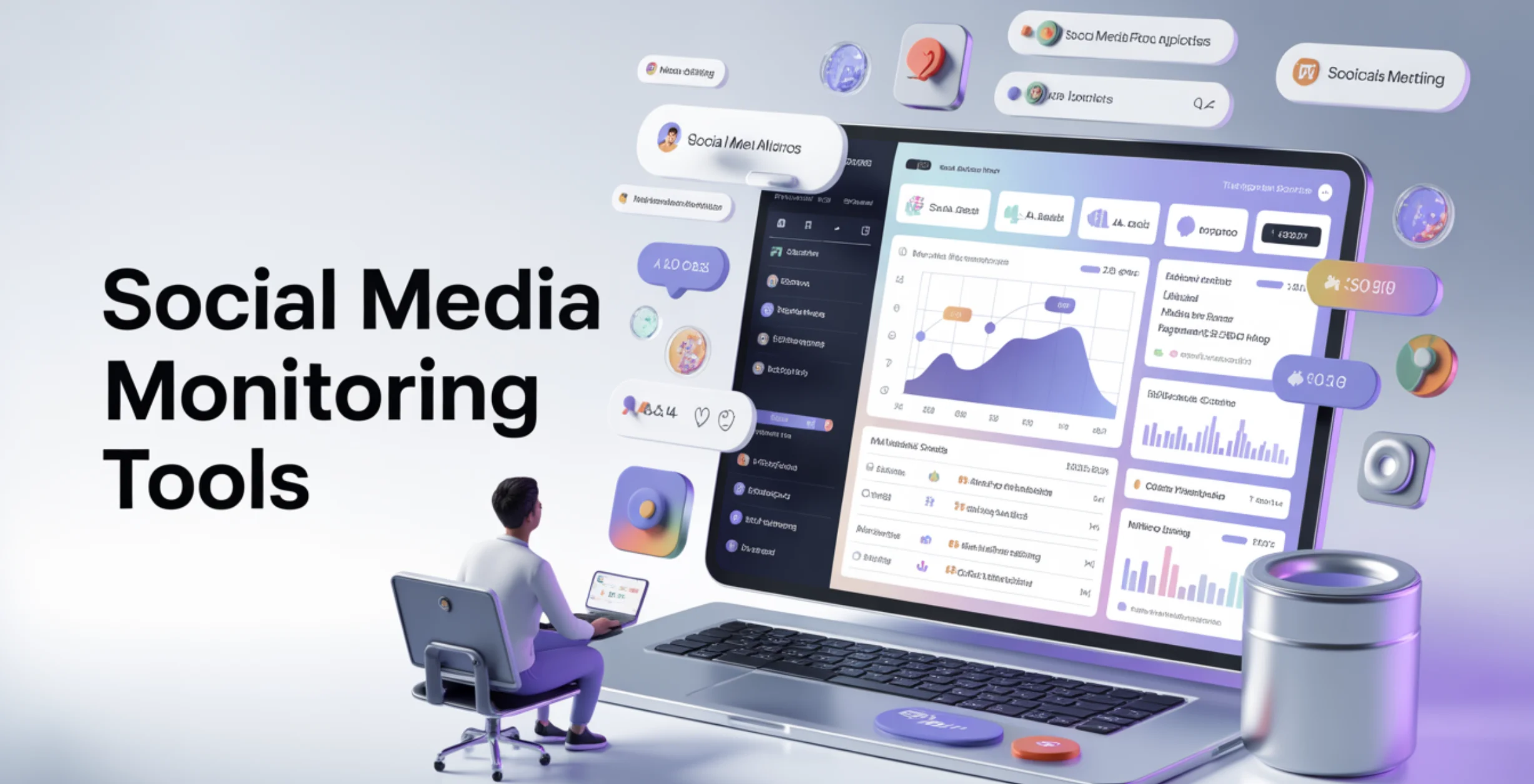While the online environment grows, so does the threat landscape. Cybersecurity is now not an option, but a must. In 2025, companies and individuals confront more sophisticated threats than ever: ransomware, data breaches, zero-day attacks, and malicious botnets are continuously evolving. One of the numerous lines of defense, firewalls are still an important first line of defense, protecting networks from unwanted access and managing traffic flow according to established rules.
No matter whether you’re running a big business, a small business, or even a smart home network, choosing the right firewall software is one of the most critical cybersecurity choices that you can make. This handbook covers all you need to know about firewalls, features and applications to existing trends and purchase considerations.
Why Firewall Software Are Still Necessary in 2025
In spite of the progress in cloud-native security and AI-powered endpoint detection, firewalls still play a foundational part in network protection. They scan incoming and outgoing traffic, enforce policy, block malicious connections, and track potential intrusions.
In the hybrid workspaces of today, workers access critical systems remotely, sometimes from personal devices over untrusted networks. Firewalls manage that risk through secure gateways, VPN capabilities, and threat scanning for both encrypted and unencrypted traffic.
Firewall software have also progressed from static perimeter defenders to dynamic systems that examine behavior, scan deep packet content, and even implement machine learning for predictive protection. The fact that they can be integrated into larger security platforms makes them invaluable for threat visibility and combined risk management.
Types of Firewall Software Available Today
Knowledge of the kind of firewalls is essential when considering what will suit your environment best. In 2025, firewall solutions come in different forms based on network architecture, size, and particular security requirements.
- Hardware Firewalls: Hardware firewalls are specialized devices placed at the perimeter of a network. They are best suited for small to large enterprises in need of high throughput, performance separation, and centralized management. They provide DPI, intrusion prevention, and custom policy support.
- Software Firewalls: Software firewalls are programs that are installed on devices or servers. They keep an eye on and filter traffic at the host level. Best suited for single systems or small networks, they usually complement hardware firewalls for internal security.
- Cloud Firewalls (FWaaS): Firewall-as-a-Service solutions are cloud-deployed and suited for enterprises that run in multi-cloud or hybrid environments. They offer scalable security, simple deployment, and integration with cloud workloads and SaaS applications.
- Next-Generation Firewalls (NGFW): NGFWs expand on legacy firewalls through the addition of advanced features such as deep packet inspection, application-level filtering, intrusion prevention, and behavioral analysis. They are highly deployed in enterprises because of their intelligence-based threat protection.
- Unified Threat Management (UTM) Devices: UTMs integrate firewall functionality with other security features such as antivirus, anti-spam, VPN, and web filtering within a single appliance. They are especially well-liked by small and mid-sized companies looking for all-in-one solutions.
List of 10 Best Firewall Software in 2025
1. Fortinet FortiGate

Fortinet FortiGate is a high-performance next-generation firewall that uses AI-powered security and embedded threat intelligence to provide better network security solutions. Scalable and high performance, FortiGate integrates deep packet inspection, intrusion prevention, and secure SD-WAN features in a single device. It blocks malware, ransomware, and phishing attacks ahead of the network using FortiGuard Labs’ real-time threat intelligence.
Its ASIC-based architecture provides high-performance throughput and low latency, making it ideal for small, medium-sized, and large businesses. FortiGate also offers SSL inspection, web filtering, application control, and VPN services from a centralized management console.
Key Features:
- AI-based threat intelligence
- Intrusion prevention
- Deep Packet Inspection
- Secure SD-WAN
- Application control
- SSL inspection
Price:
- Begins at $500 (hardware alone) for small offices.
2. Palo Alto Networks Next-Generation Firewall

Palo Alto Networks‘ NGFW provides in-depth security through application-aware traffic control and machine learning-driven threat prevention. It examines all traffic, including encrypted traffic, to detect malware, exploits, and other threats. Integration with the greater Palo Alto security platform (Cortex XDR, Prisma Cloud) provides visibility across cloud and on-prem environments.
With features such as DNS Security, URL Filtering, and sandboxing, the firewall software offers policy-based automation with layered defense. Suitable for businesses, the firewall maintains minimal performance impact with single-pass architecture.
Key Features:
- Application-layer control
- ML-based threat detection
- DNS filtering
- Sandboxing
- Encrypted traffic analysis
Price:
- Begins at $1,000 depending on deployment and feature sets.
3. Cisco Secure Firewall (Firepower)

Cisco Secure Firewall provides high-performance security with real-time threat intelligence from Cisco Talos and advanced malware defense. It provides centralized policy management, intrusion prevention, URL filtering, and encrypted traffic analytics for physical, virtual, and cloud deployments.
Its single platform is engineered to streamline network security solutions while safeguarding hybrid and multi-cloud infrastructures. Network-wide extended detection and response (XDR) is made possible by integration with Cisco SecureX.
Key Features:
- Intrusion Prevention
- Malware Blocking
- Secure VPN
- Cloud-Based Firewalling
- Talos Threat Intelligence
Price:
- Starts at $600 for small appliances; licensing is not fixed.
4. Check Point Quantum Security Gateway

Check Point Quantum Security Gateway provides next-generation threat prevention by way of real-time AI engines and sandboxing to prevent zero-day malware. It supports unified security management with IPS, antivirus software, VPN, DLP, and more in a single appliance.
Quantum offers policy-based access controls, cloud readiness, and identity awareness to manage user and device activity. Its modular scalability means it can be used for anything from SMBs to large enterprises.
Key Features:
- Zero-day threat prevention
- unified threat management
- Identity-based policy control
- DLP
- Sandboxing
Price:
- From $700 for small-scale versions.
5. SonicWall Network Security Appliance (NSA)

With real-time deep packet inspection and sophisticated threat detection, SonicWall NSA firewalls offer comprehensive security. Ransomware, encrypted attacks, and fresh zero-day vulnerabilities are all identified and blocked by its Capture ATP engine.
With DPI-SSL support, secure SD-WAN, and app visibility, SonicWall provides strong, cost-effective protection for SMBs and enterprises. It also provides centralized cloud-based monitoring via Capture Security Center.
Key Features:
- Real-time DPI
- SSL inspection
- Threat Sandboxing
- Secure SD-WAN
- VPN Support
Price:
- Begins at $400 with additional optional service subscriptions.
6. Sophos XGS Firewall

The Sophos XGS Firewall combines machine learning-based threat detection with synchronized security and deep TLS inspection. It employs dual-engine scanning to support high-speed performance even when encrypted traffic is inspected.
The firewall natively supports Sophos Central for centralized endpoint and network security management. It also supports policy templates, SD-WAN, and automated response to threats.
Key Features:
- Deep learning detection
- TLS inspection
- SD-WAN
- Synchronized endpoint integration
- Traffic Shaping
Price:
- Begins at $450 for basic models; cloud options available.
7. WatchGuard Firebox

WatchGuard Firebox delivers enterprise-level network protection through layered security and centralized visibility. Its Total Security Suite includes intrusion prevention, APT blocking, DNS filtering, and threat intelligence feeds.
It’s famous for its simple deployment, high performance, and real-time monitoring through WatchGuard Cloud. Suitable for managed service providers and small businesses, Firebox streamlines administration with flexible licensing.
Key Features:
- Intrusion Prevention
- Cloud Management
- DNS Protection
- Reputation Filtering
- Sandboxing
Price:
- Begins at $350 hardware; complete suite licenses additional.
8. Juniper Networks SRX Series

Juniper’s SRX Series provides high-performance firewalling with intrusion prevention, secure SD-WAN, and threat intelligence through Sky ATP. It is supported in high throughput environments ranging from branch offices to data centers.
SRX platform is comprehensively scalable and can be integrated with Junos Space for centralized orchestration of policy. Its automation and zero-touch provisioning support makes it the go-to option for large and distributed networks.
Key Features:
- IPS
- NAT
- SD-WAN
- Sky ATP
- Junos Space Management
- Scalable Architecture
Price:
- Begins at $1,000 for branch-level appliances.
9. pfSense Plus

pfSense Plus is a powerful open-source firewall software that features advanced capabilities such as VPN, intrusion detection, and traffic shaping at low cost. Netgate designed it to support both virtual and hardware installations with high customization.
It has package-based extensions, multi-WAN support, VLAN tagging, and captive portals, making it suitable for small offices and institutions with IT support.
Key Features:
- OpenVPN/IPsec Support
- IDS/IPS
- Customizable rules
- Traffic shaping
- Multi-WAN
Price:
- Free (open source); commercial appliances starting at $179.
10. Bitdefender BOX 3

Bitdefender BOX 3 is an easy-to-use firewall specifically designed for home networks and IoT settings. It employs AI-powered protection to lock down all the connected devices, incl. smart TVs, cameras, and mobile phones, against malware, phishing, and network attacks.
Bitdefender Total Security also comes with device usage tracking, parental controls, a VPN, and anti-tracker software. Its mobile application provides simple remote control for non-tech users.
Key Features:
- Smart Home Protection
- Anti-phishing
- VPN
- Parental controlS
- AI-based threat detection
Price:
- $199/year covering security software for all devices.
How to Test and Determine Firewall Software Effectiveness
Before purchasing, it’s a good idea to test firewall efficiency in a laboratory environment or by trying out demos. The following are important test categories:
- Throughput and Latency: Does it impair network speed when operating at maximum capacity?
- Malware Detection: Can it scan for known and unknown threats in real-time?
- Application Awareness: Can it identify applications and apply certain rules?
- VPN Stability: Are long-term sessions stable and speedy?
- Logging and Alerts: Are incidents logged clearly with actionable intelligence?
Some companies utilize third-party audit services or firewall benchmarking tools (e.g., NSS Labs tests, ICSA certification) to compare several vendors on a side-by-side basis.
Conclusion
Firewalls have evolved way beyond their early days as crude traffic blockers. They are now, in 2025, intelligent, dynamic systems that form the cornerstone of an end-to-end cybersecurity approach. Cloud-based or appliance-powered, their purpose is no longer simply to block intrusions—but to sensibly inspect, react, and integrate into overall threat defense systems.
Selecting the appropriate firewall software involves knowing your organization’s risk profile, infrastructure, and expansion strategy. Whether in a small office or an enterprise network, firewalls offer the insight, control, and threat intelligence to succeed in today’s digital world.
With the proper firewall in place, your systems are not only secure, they’re able to resist, respond, and recover from contemporary cyberattacks.
Frequently Asked Questions (FAQs)
1. What is the Primary Function of a Firewall Software in 2025?
The main role of a firewall in 2025 is to monitor, filter, and control incoming and outgoing network traffic based on predefined security rules. Advanced firewalls also use AI and machine learning to detect threats, analyze encrypted traffic, and integrate with broader cybersecurity platforms for real-time protection.
2. If I have Antivirus Software, do I still need a Firewall?
Yes, firewalls and antivirus software serve different purposes. A firewall preserves your network by regulating access and keeping an eye on traffic, while antivirus software protects your device from viruses. Using both together offers a layered security approach for better protection.
3. What Type of Firewall Software is Best for Small Businesses?
For small businesses, Unified Threat Management (UTM) firewalls are a great choice. They combine multiple security features—like antivirus, web filtering, intrusion prevention, and VPN—into one easy-to-manage device, offering comprehensive protection at a lower cost.
4. Are Cloud Firewalls Secure for Hybrid or Multi-Cloud Environments?
Yes, cloud-based firewalls (Firewall-as-a-Service or FWaaS) are specifically designed to protect hybrid and multi-cloud infrastructures. They offer scalability, centralized control, and integration with cloud applications, making them a secure and efficient choice for modern enterprises.
5. How Often Should I Update my Firewall?
Firewalls should be updated regularly with the latest firmware and threat intelligence feeds to stay effective. Most modern firewalls support automated updates, and regular patching ensures protection against emerging vulnerabilities and zero-day exploits.






